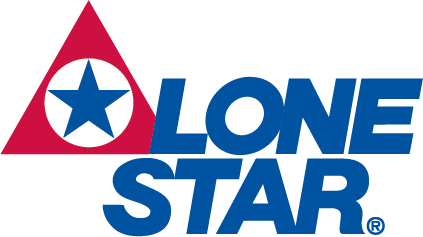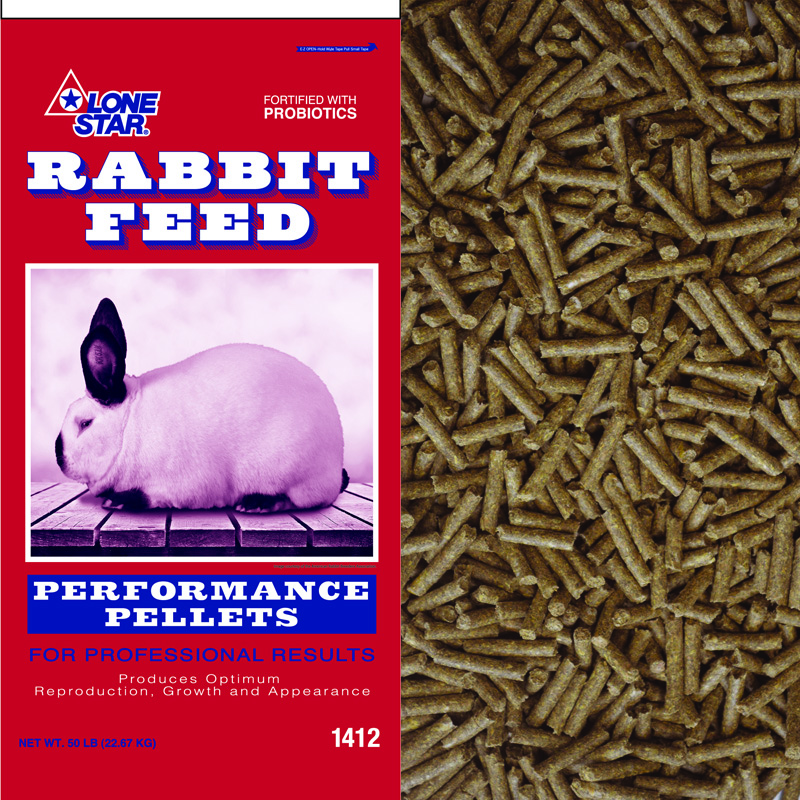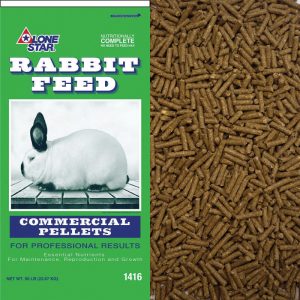Description
FEATURES
- 18% protein
- Alfalfa based ration
- Fortified with a probiotic that contains:
- Ecapsulated microbes – Lactobacillus acidophilus & Enterococcus faecium
- Yeast culture
- Enzymes – Protease, Amylase & Cellulase
- Contains DE-ORDORASE, a unique three-way feed additive that provides odor control, improved digestion, and performance
- Available in 50 (Code 1412), 25 (Code 1415), and 10 (Code 1419) lb sizes
BENEFITS
- Flexibility – can be fed as sole ration or with good quality legume hay or fresh grass
- Excellent ration for producing show-winning rabbits
- Added microbes colonize intestine with protective microflora resulting in better health
- Yeast culture improves palatability, digestion, and nutrient utilization
- Added enzymes improve digestion of proteins, starches, and cellulose resulting in improved feed conversion
- DE-ODORASE reduces the level of ammonia gas and odor released in the atmosphere from animal waste
- Additional enzymes and encapsulated microbes contained in DE-ODORASE improve digestion and performance
Forage products, processed grain by-products, plant protein products, roughage products (11.5%), cane molasses, calcium carbonate, salt, DL-methionine, dried Lactobacillus acidophilus fermentation product, dried Enterococcus faecium fermentation product, vitamin A acetate, vitamin D3 supplement, vitamin E supplement, vitamin B12 supplement, riboflavin supplement, niacin supplement, calcium pantothenate, choline chloride, menadione sodium bisulfite complex (source of vitamin K activity), folic acid, pyridoxine hydrochloride, thiamine mononitrate, sodium selenite, biotin, manganese sulfate, zinc sulfate, ferrous sulfate, copper sulfate, calcium iodate.
Rabbit Feed Performance Pellets is a high energy feed containing additional nutrients required for optimum reproduction, growth & appearance.
This ration may be fed as the sole ration or it may be fed with good quality legume hay or fresh grass. The feeding rates suggested below are based on the assumption that no hay or grass is used. If hay or grass is fed free choice, reduce the quantity of this ration fed daily to approximately 1/2 the amount recommended below, then adjust the feeding rate as necessary to maintain the desired condition of the rabbit.
DOES AND LITTERS: Limit feed to pregnant does to 3 to 5 ounces per day during the first two-thirds of their pregnancy to control weight gain. During the last third of pregnancy, gradually increase the quantity of feed to a level approaching free choice at kindling. Feed free choice to lactating does and their litters. Lactating does should consume 4 to 8 ounces per day depending upon their size and condition. The doe and her litter will consume considerably more as the bunnies mature.
DRY DOES, HERD BUCKS, AND PETS: Excessive weight gain in rabbits is one factor that affects health and fertility. Control excessive weight gains by limiting the feed to approximately 3 to 5 ounces per day. Adjust the feeding rate to maintain the desired weight.
WEANED BUNNIES: Litters should be weaned from the doe as soon as they are eating freely or as soon as the doe is without milk or is bred. For maximum weight gains, feed weaned bunnies Rabbit Star Performance Pellets free choice as the sole ration.
SOME IMPORTANT MANAGEMENT PRACTICES:
• Changes in feed should be made gradually. Sudden changes may make the rabbits sick or cause death. When changing from one feed to another, start by mixing 1/4 of the new feed with 3/4 of the old feed. Continue to mix the feeds over a five- to six-day period, gradually increasing the amount of the new feed until the rabbits are eating it entirely.
• Feed regularly. One, two, or three feedings per day may be used. The time of feeding each day is more important than the number of feedings. Since rabbits eat mostly at night, late afternoon or evening feeding is preferred.
• Provide plenty of fresh, clean, cool water at all times.
• Follow a strict sanitation and health program. Consult your local veterinarian or your Country Agricultural Extension Service for advice.
| Crude Protein, minimum | 18.00 | % |
| Crude Fat, minimum | 3.00 | % |
| Crude Fiber, minimum | 14.00 | % |
| Crude Fiber, maximum | 16.00 | % |
| Calcium (Ca), minimum | 0.90 | % |
| Calcium (Ca), maximum | 1.25 | % |
| Phosphorus (P), minimum | 0.60 | % |
| Salt (NaCl), minimum | 0.25 | % |
| Salt (NaCl), maximum | 0.75 | % |
| Vitamin A, minimum | 2,000 | IU/LB |
| DIGESTIBLE ENERGY | 1220.33 | Kcal/lb |
| TDN | 57.93 | % |
| PROTEIN | 18.19 | % |
| DIG | 14.43 | % |
| ARGININE | 1.06 | % |
| CYSTINE | 0.27 | % |
| HISTIDINE | 0.37 | % |
| ISOLEUCINE | 0.78 | % |
| LEUCINE | 1.21 | % |
| LYSINE | 0.92 | % |
| METHIONINE + CYSTINE | 0.59 | % |
| PHENYLALANINE + TYROSINE | 1.19 | % |
| THREONINE | 0.66 | % |
| TRYPTOPHAN | 0.35 | % |
| TYROSINE | 0.46 | % |
| VALINE | 0.86 | % |
| FAT | 3.69 | % |
| FIBER | 15.88 | % |
| NFE | 40.24 | % |
| ASH | 8.96 | % |
| CALCIUM | 1.10 | % |
| CHLORINE | 0.61 | % |
| COPPER | 8.81 | mg/lb |
| IODINE | 0.28 | mg/lb |
| IRON | 31.01 | mg/lb |
| MAGNESIUM | 0.39 | % |
| MANGANESE | 65.76 | mg/lb |
| PHOSPHORUS | 0.70 | % |
| POTASSIUM | 1.48 | % |
| SELENIUM | 0.24 | % |
| SODIUM | 0.30 | % |
| SULFUR | 0.23 | % |
| ZINC | 48.29 | mg/lb |
| BIOTIN | 0.35 | mg/lb |
| CHOLINE | 810.87 | mg/lb |
| FOLIC ACID | 0.63 | mg/lb |
| NIACIN | 65.54 | % |
| PANTOTHENIC ACID | 18.90 | mg/lb |
| VITAMIN B6 | 4.47 | mg/lb |
| RIBOFLAVIN | 4.45 | mg/lb |
| THIAMINE | 3.13 | mg/lb |
| CAROTENE | 16.80 | mg/lb |
| VITAMIN A | 8.54 | KIU/lb |
| VITAMIN D3 | 0.40 | KIU/lb |
| VITAMIN B12 | 10.67 | mcg/lb |
| VITAMIN K | 0.50 | mg/lb |
| VITMAIN E | 32.65 | IU/lb |


